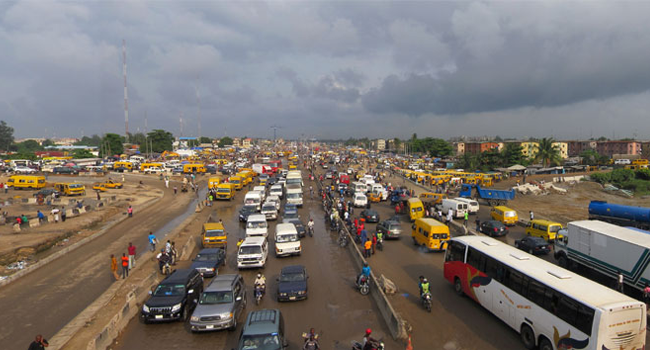The Federal Government has announced plans to introduce toll gates on major national highways, including the Lagos-Ibadan Expressway, the Second Niger Bridge, and other key routes across the country.
This was revealed by the Minister of Works, Dave Umahi, during an inter-ministerial press briefing in Abuja, part of the events marking Nigeria’s 64th Independence anniversary.

Umahi stated that the tolling system is aimed at maintaining and improving road infrastructure, with private sector investors contributing funds for construction and renovation under the Infrastructure Concession Regulatory Commission’s framework.
The minister highlighted that this initiative is part of President Bola Tinubu’s commitment to treating road development as a serious investment opportunity.
READ ALSO: Open Defecation Crisis Emerges on Lagos-Ibadan Expressway Despite Infrastructure Revamp
“We are completing the Lagos-Ibadan Expressway, the Makurdi 9th Mile in Enugu State, and several other roads. These roads will be tolled, but not just for the sake of revenue.
We are introducing measures to ensure safety, like 24-hour security patrols and solar lighting on these routes. People will be willing to pay tolls if they are confident the roads are safe and well-maintained,” Umahi explained.
The tolling process will start with the Keffi-Makurdi road, which has been completed, while other highways, including the Abuja-Kano route, are in the pipeline for renovation and subsequent tolling.
READ ALSO: What to know about Tinubu’s N20trn Renewed Hope Infrastructure Fund
The government also plans to make toll payments paperless, collaborating with the Ministry of Finance to implement digital payment systems for ease of use.
This development is part of a broader agenda to enhance Nigeria’s road networks and provide long-term maintenance solutions through toll collection, with additional road construction projects set to begin by October 1, 2024.
The minister reiterated the administration’s focus on turning road infrastructure into viable investments and ensuring that these projects are sustainable, securing long-term benefits for road users across the country.



